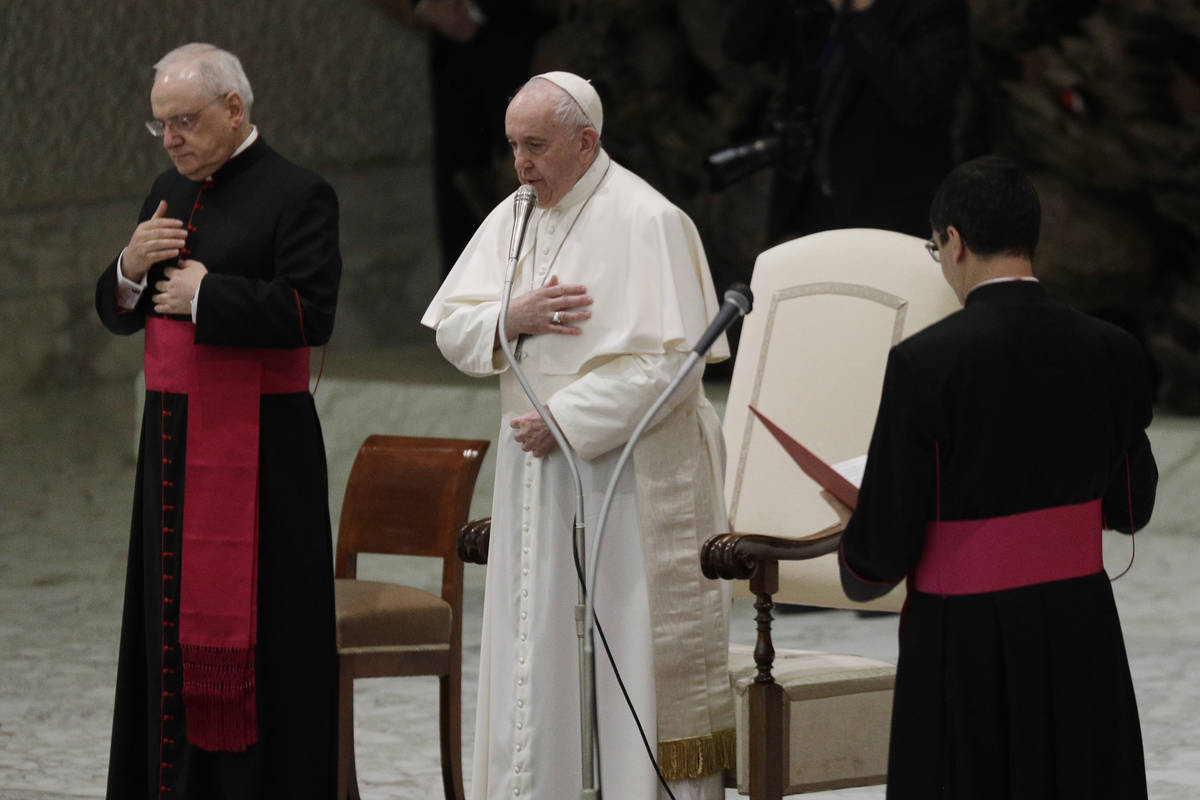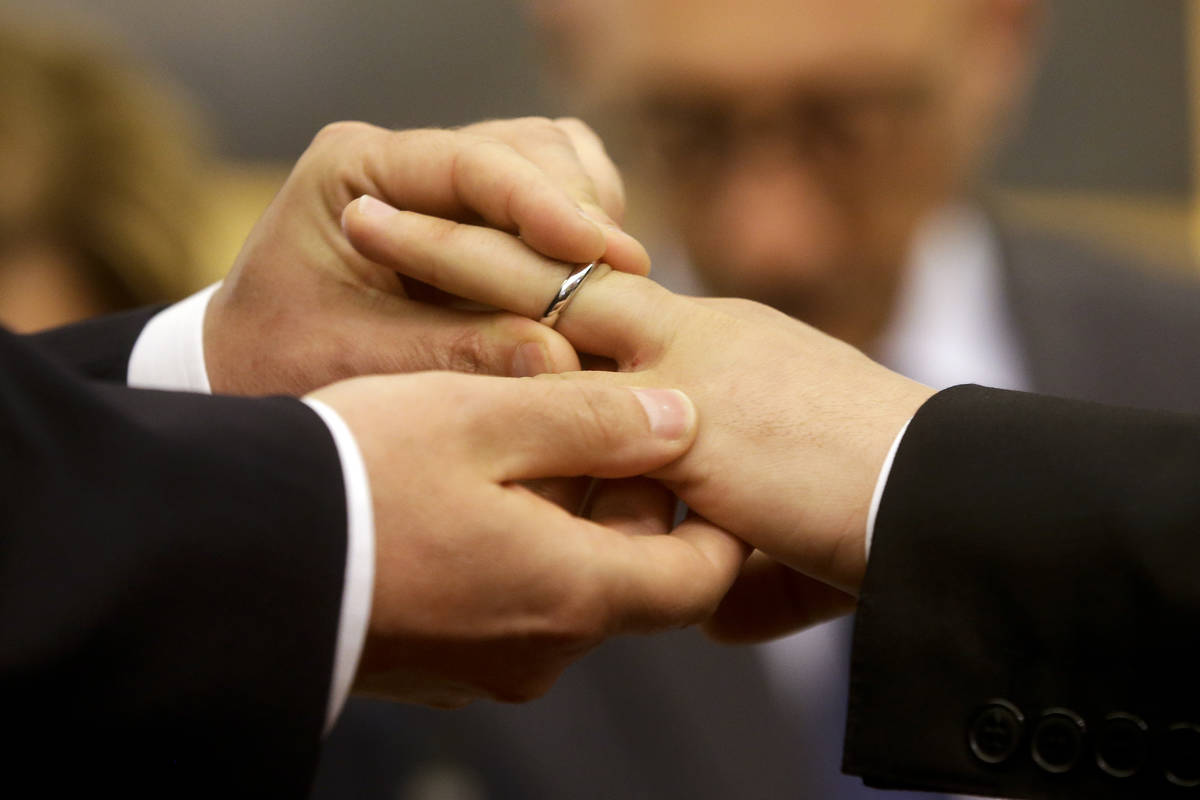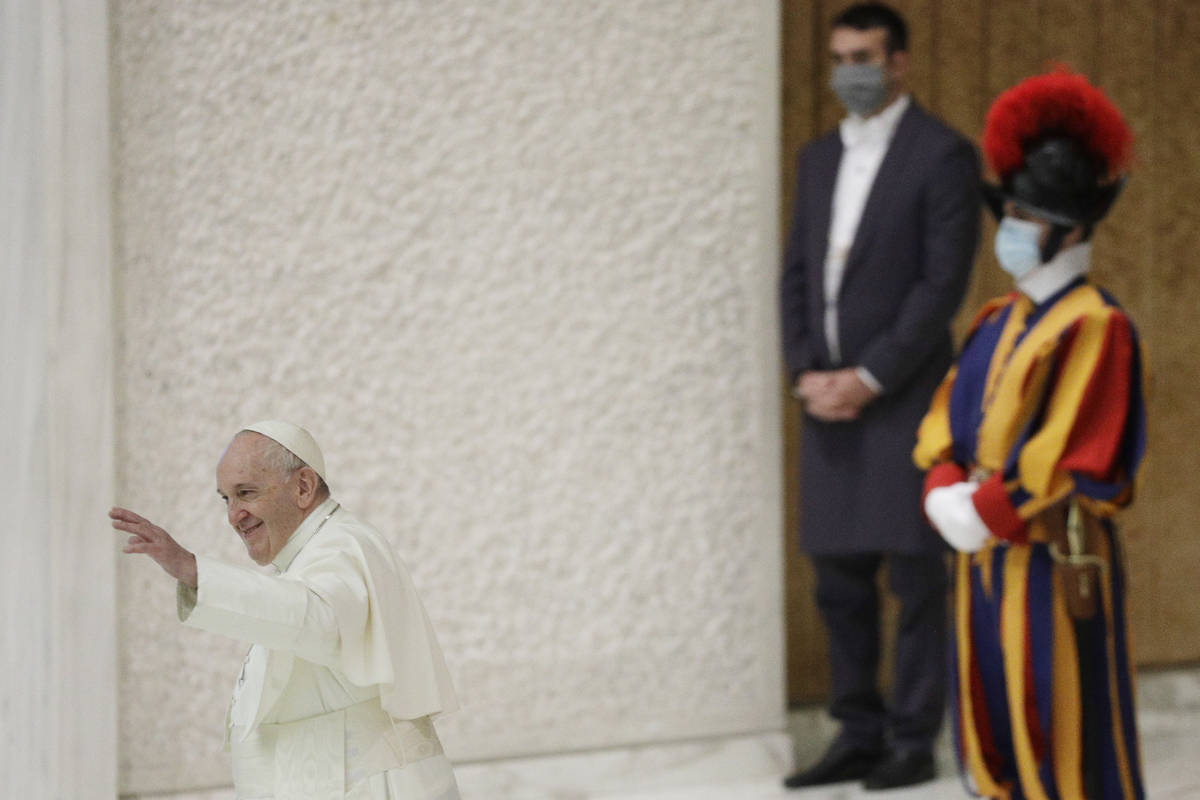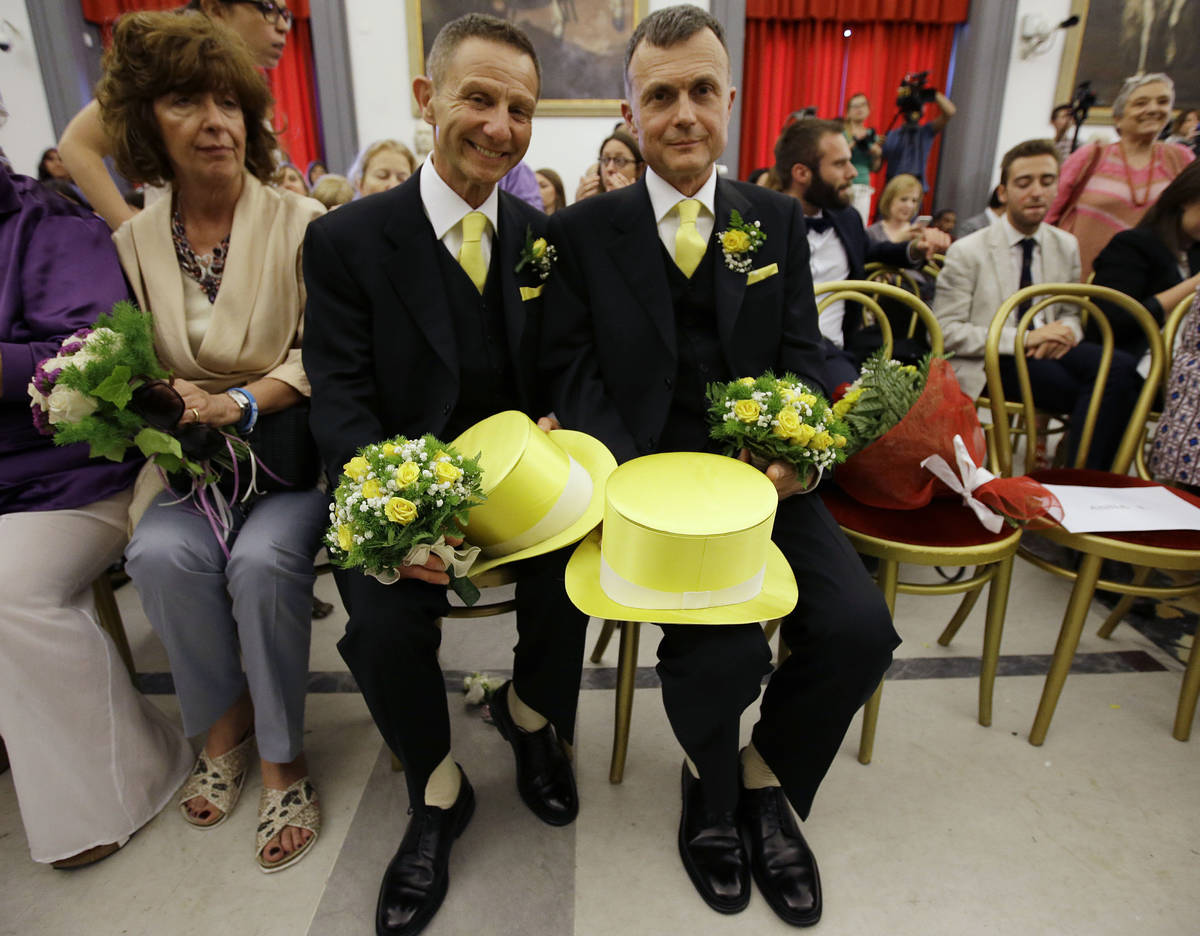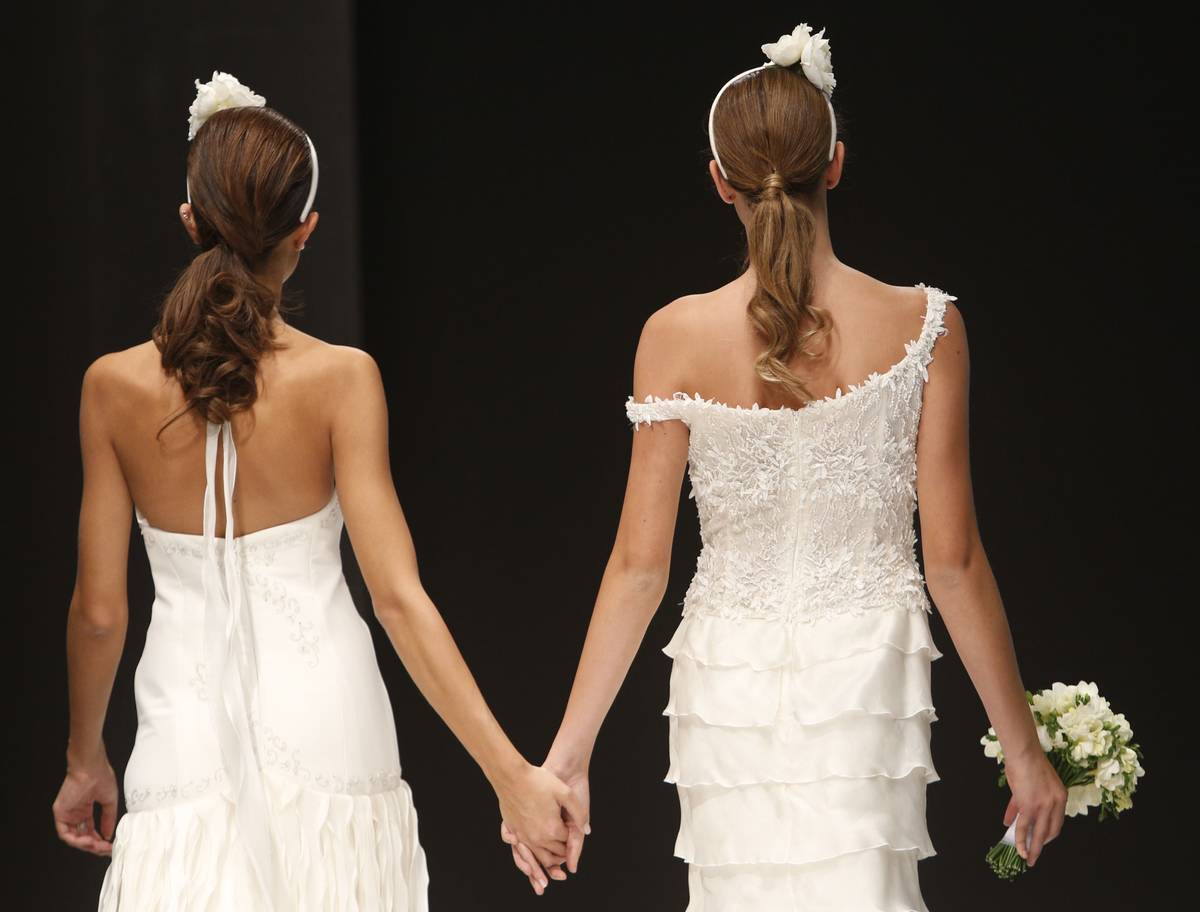Pope endorses same-sex civil unions in new film
ROME — Pope Francis endorsed same-sex civil unions for the first time as pontiff while being interviewed for the feature-length documentary “Francesco,” which premiered Wednesday at the Rome Film Festival.
The papal thumbs-up came midway through the film that delves into issues Francis cares about most, including the environment, poverty, migration, racial and income inequality, and the people most affected by discrimination.
“Homosexual people have the right to be in a family. They are children of God,” Francis said in one of his sit-down interviews for the film. “You can’t kick someone out of a family, nor make their life miserable for this. What we have to have is a civil union law; that way they are legally covered.”
While serving as archbishop of Buenos Aires, Francis endorsed civil unions for gay couples as an alternative to same-sex marriages. However, he had never come out publicly in favor of civil unions as pope.
The Jesuit priest who has been at the forefront in seeking to build bridges with gays in the church, the Rev. James Martin, praised the pope’s comments as “a major step forward in the church’s support for LGBT people.”
Sends a message
“The Pope’s speaking positively about civil unions also sends a strong message to places where the church has opposed such laws,” Martin said in a statement.
One of the main characters in the documentary is Juan Carlos Cruz, the Chilean survivor of clergy sexual abuse whom Francis initially discredited during a 2018 visit to Chile.
Cruz, who is gay, said that during his first meetings with the pope in May 2018 after they patched things up, Francis assured him that God made Cruz gay. Cruz tells his own story in snippets throughout the film, chronicling both Francis’ evolution on understanding sexual abuse as well as to document the pope’s views on gay people.
Director Evgeny Afineevsky had remarkable access to cardinals, the Vatican television archives and the pope himself. He said he negotiated his way in through persistence, and deliveries of Argentine mate tea and Alfajores cookies that he got to the pope via some well-connected Argentines in Rome.
“Listen, when you are in the Vatican, the only way to achieve something is to break the rule and then to say, ‘I’m sorry,’” Afineevsky said in an interview ahead of the premiere.
The director worked official and unofficial channels starting in early 2018, and ended up so close to Francis by the end of the project that he showed the pope the movie on his iPad in August. The two recently exchanged Yom Kippur greetings; Afineevsky is a Russian-born Jew who lives in Los Angeles.
But “Francesco” is more than a biopic about the pope.
Wim Wenders did that in the 2018 film “Pope Francis: A Man of His Word,” which premiered at the Cannes Film Festival. “Francesco,” is more a visual survey of the world’s crises and tragedies, with audio from the pope providing possible ways to solve them.
Traveled the world
Afineevsky traveled the world to film it: the settings include Cox’s Bazaar in Bangladesh where Myanmar’s Rohingya sought refuge; the U.S.-Mexico border and Francis’ native Argentina.
“The film tells the story of the pope by reversing the cameras,” said Vatican communications director Paolo Ruffini, who was one of Afineevsky’s closest Vatican-based collaborators on the film.
Ruffini said that when Afineevsky first approached him with the idea of a documentary, he tried to tamp down his hopes for interviewing the pope.
“I told him it wasn’t going to be easy,” he said.
But Ruffini gave him some advice: names of people who had been impacted by the pope, even after just a brief meeting. Afineevsky found them: the refugees Francis met with on some of his foreign trips, prisoners he blessed, and some of the gays to whom he has ministered.
“I told him that many of those encounters had certainly been filmed by the Vatican cameras, and that there he would find a veritable gold mine of stories that told a story,” Ruffini said. “He would be able to tell story of the pope through the eyes of all and not just his own.”
Outreach started in 2013 trip
Francis’ outreach to gays dates to his first foreign trip in 2013, when he uttered the now-famous words “Who am I to judge,” when asked during an airborne news conference returning home from Rio de Janiero about a purportedly gay priest.
Since then, he has ministered to gays and transsexual prostitutes, and welcomed people in gay partnerships into his inner circle. One of them was his former student, Yayo Grassi, who along with his partner visited Francis at the Vatican’s Washington D.C. embassy during the pope’s 2015 visit to the U.S.
The Vatican publicized that encounter, making video and photos of it available, after Francis was ambushed during that same visit by his then-ambassador, Archbishop Carlo Maria Vigano, who invited the anti-gay marriage activist Kim Davis to meet with the pope.
News of the Davis audience made headlines at the time and was viewed by conservatives as a papal stamp of approval for Davis, who was jailed for refusing to issue same-sex marriage licenses. The Vatican, however, vigorously sought to downplay it, with the Vatican spokesman saying the meeting by no means indicated Francis’ support for her or her position on gay marriage.
However, the former Cardinal Jorge Mario Bergoglio was fervently opposed to gay marriage when he was archbishop of Buenos Aires. Then, he launched what gay activists remember as a “war of God” against Argentina’s move to approve gay marriage.
But the pope’s authorized biographer, Sergio Rubin, at the time of his 2013 election said Bergoglio was politically wise enough to know the church couldn’t win a straight-on fight against gay marriage. Instead, Rubin said, Bergoglio urged his fellow bishops to lobby for gay civil unions instead.
It wasn’t until his proposal was shot down by the conservative bishops’ conference that Bergoglio publicly declared his opposition, and the church lost the issue altogether.
Francis, in the new documentary, confirms Rubin’s account of what transpired. Of his belief in the need for legislation to protect gays living in civil relationships, he said: “I stood up for that.”



